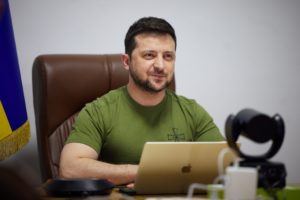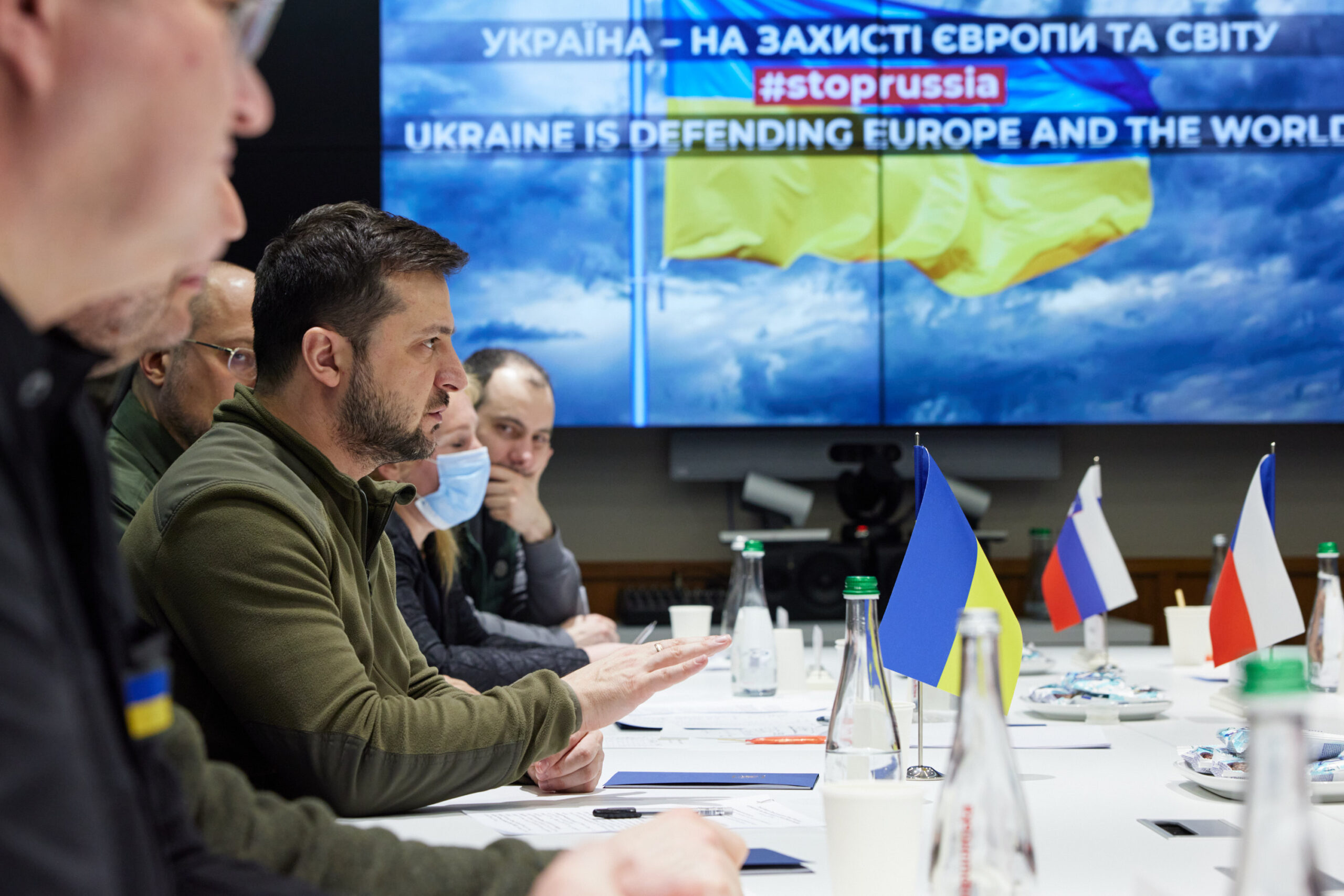One year ago, I hailed the Biden Administration’s renewal and extension of the New START treaty with the Russian Federation’s Vladimir Putin. This treaty was the backbone of diplomatic efforts undertaken thirty-five years ago to protect our nation and the world against a new strategic nuclear arms race. The New START treaty extension locked in critical strategic nuclear weapons force reductions achieved with its initial signing between U.S. President Clinton and Russian President Yeltsin in 1994, during the earliest days of the post-Cold War era.
In that piece, I wrote:
But we should never take our future security for granted when thousands of nuclear warheads are deployed right here in Washington State and are top targets of Russian strategic nuclear forces… Extending New START ensures we will have verifiable limits on the mainstay of Russian nuclear weapons that can reach the U.S. homeland for the next five years… The Russian Federation has the capacity to deploy many more than 1,550 warheads on its modernized ICBMs and SLBMs, as well as heavy bombers, but is constrained from doing so by New START.
Each morning since the invasion began, I have thought about all of the lives and dreams that have been shattered by this vile act of aggression.
Thirty years ago, the Russian Republic and Ukrainian Republic joined with the other thirteen republics of the Union of Soviet Socialist Republics (USSR) and formally dismantled the Soviet Union. Fifteen republics became independent nations and called themselves a “Commonwealth of Independent States (CIS).”
In April 1992, I prepared a briefing for U.S. Government officials and senior executives at my company on “Cooperative Science and Technology Programs with the CIS: Why and How They Need to Work.”
In June and July 1992, I traveled to Moscow, Russia, for the first time. For the next seven years, I would make more than sixty trips to Moscow and other Russian cities, working to build ties with the former Soviet states so that we would never again return to an era where nuclear war threatened to destroy the world.
During the 1980s, I was a defense intelligence analyst responsible for assessing Soviet nuclear threats to the United States and NATO allies.
In December 1991, the world changed with the collapse of the Soviet Union. Just months later, there I was, flying into Russia and preparing to work on behalf of the U.S. Government implementing cooperative threat reduction programs:
- Managing teams of U.S.-Russian scientists and engineers to destroy nuclear weapons as required under the Intermediate Nuclear Forces (INF) and Strategic Arms Reduction Treaties (START);
- Building seismic monitoring stations in Siberia and northern Ukraine to monitor compliance with the Comprehensive Nuclear Test Ban Treaty and Nuclear Non-Proliferation Treaty; and
- Creating relationships with Russian and Ukrainian colleagues to put our countries’ collective futures on a new path beyond the Cold War.
Eurasia’s next thirty years will be shaped by how democracies contend with Vladimir Putin’s continued reign and his plans to make Ukraine a puppet state.
Last month, Vladimir Putin launched an unprovoked, large-scale attack on Ukrainian families, destroying lives and communities with deep personal and cultural ties to family, friends, and colleagues in the Russian Federation, among European nations, and in the United States and Israel. Putin’s invasion is also leaving Europe and the world more exposed to the risk of a nuclear catastrophe.

During the past eighteen years, Putin has periodically unleashed his fury on Ukrainians in the Crimea, against Georgians, and on Russians who have opposed his dictatorial rule.
But with this invasion of Ukraine, Putin’s New World Disorder is now fully exposed.
The democratically elected leader of Ukraine, Volodymyr Zelenskyy, is at center stage. President Zelenskyy has held his nation and people together by staying in Kyiv, communicating with his people every day, and exhorting the global community to send assistance to his people.
His leadership is defying Putin’s ambitions.
By deploying every element of leadership, power, and diplomacy, Ukraine’s President has allowed his people, the European Union, NATO members, and the United States to consider the scenario – however unlikely – that never crossed Putin’s mind: That Ukraine may deny Putin his victory.
Democratically elected governments and our notions of security, stability, and diplomacy in the twenty-first century now must endure a stress test of unknown length. But a collective, concerted strategy to strangle Russia’s economy and force Russian elites and aristocrats to stay house-bound in Russia just might create a reverse stress test.
An aligned European Union, Organization of Security and Cooperation in Europe, NATO, and United Nations, with every organization using their respective levers of diplomatic, economic, political, social, and military influence and actions.
This is the very scenario Putin dismissed.
Putin’s war assumed that four key leaders were too weak and too distracted at home to mount a collective response to his invasion of Ukraine:
- Joe Biden was mired in low approval ratings and contending with the U.S. mass media’s constant “sky is falling” mantra about inflation;
- British Prime Minister Boris Johnson’s polling numbers were lower than Biden’s and calls for his resignation kept surfacing.
- Olaf Sholz, the new German Chancellor, had barely formed a governing coalition and led a nation that depends on Russia supplying forty percent of its oil and gas.
- And then there was Ukrainian President Volodymyr Zelenskyy: the democratically elected leader and former comedian who had spurned Putin and still managed to win a contested presidential election.
The people of Ukraine – and yes, the people of Russia – will wonder for the rest of their lives what made Putin attack another Slavic nation.
Trying to predict Putin’s next move is impossible.
What is possible? Preparing our collective next moves. Helping Ukrainians know that they are not fighting alone, and that their people now fleeing to European nations and American cities will be kept safe for the duration.
Reminding each other that diplomatic efforts must persist if we are to reduce the risks of escalation. And in the midst of this terrible moment, we must hold onto the essential and unique power of democratic governments: we have the power of the people standing with us.
Putin does not.
It is the power of the Ukrainian people that gives their President the courage to call on the rest of the world to come to the aid of his nation, as he did again this morning when he spoke to an extraordinary gathering of Congress.
We all must find the stamina to stand up for Ukraine for as long as it takes.
And if Putin decides to bend and negotiate a withdrawal of is forces, then we must use our power to ensure that the Russian people do not break.
This is our stress test of a lifetime. Let’s figure out how to survive it together.
Editor’s Note: Gael Tarleton is an NPI Advisory Councilmember who served on NPI’s Board of Directors for over ten years. She served the people of King County and Washington State as a port commissioner and state representative from 2008–2021. She now works for Mayor Bruce Harrell as Interim Intergovernmental Relations Director. The views expressed here are her own, and not those of the City of Seattle. Gael dedicates this article to Bill, Viktor, Andrei, Valeriy, Oles, and two generals, all Ukrainians and Ukrainian emigres who worked with her in Russia and Ukraine in the 1990s. She hopes they and their families are safe.

